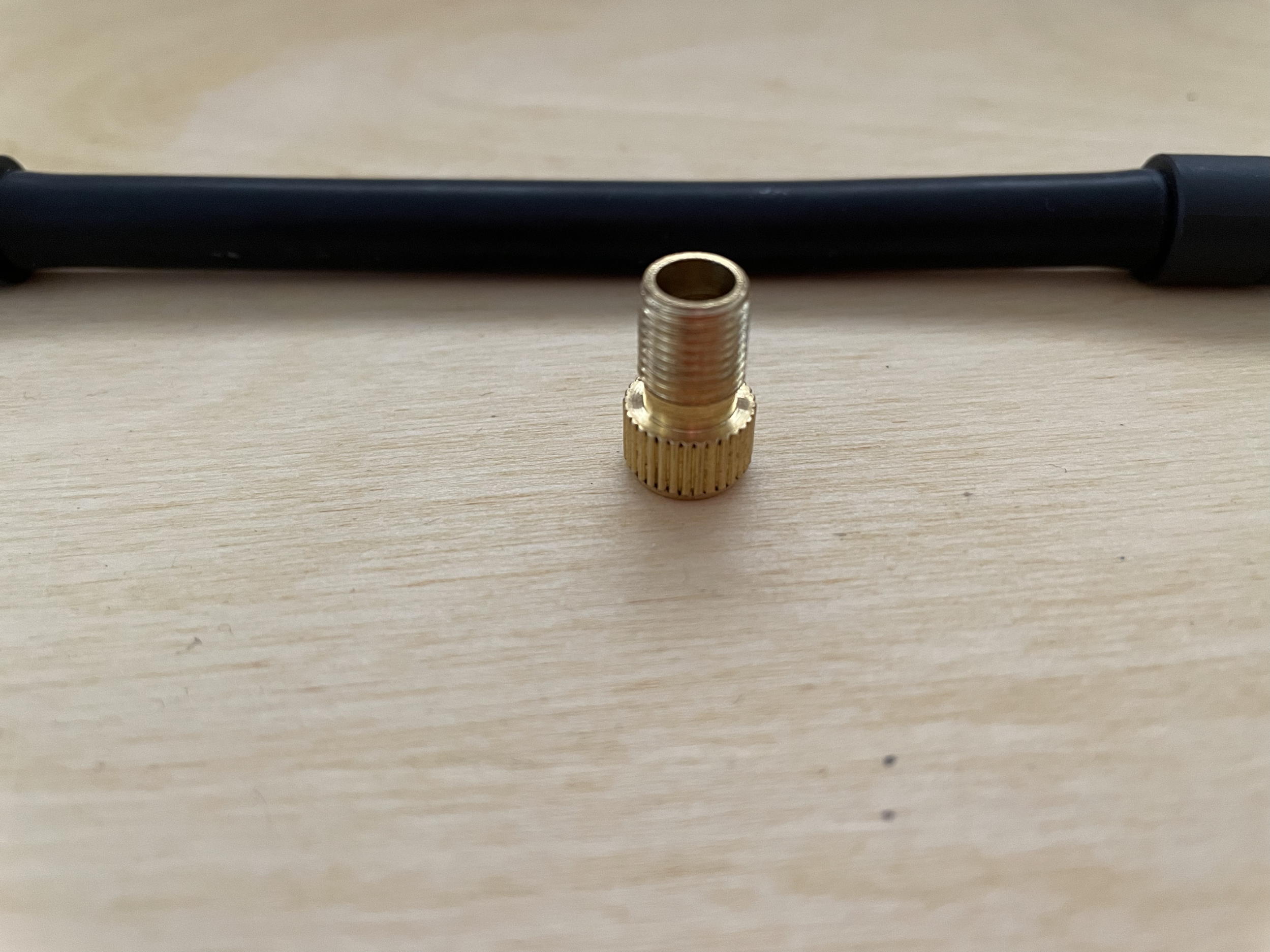A handy, if fiddly, portable tyre inflator if you regularly run out of puff with a track pump.
Ring Rechargeable Handheld Tyre Inflator review
Look in the back of a mountain biker’s car or van and invariably there’ll be a battered old floor pump rattling around. It’ll probably be in need of a service, with a wheezy shaft and baggy seals that leak air. If that’s you, and you believe there must be a better solution, then this Ring Cordless Inflator could be the answer to your prayers.
This cylindrical compressor is about the size of a thermal coffee cup and weighs just under half a kilo. It’s that shape for a reason – there’s a bottle cage included in the box, so it’s possible to attach the inflator to your bike. I can’t see this being useful for most mountain bikers, but it does mean the unit fits into a cup holder.

The football adaptor is one of those things you can never seem to find when you need one.
There are several other accessories thrown in for good measure: a valve adapter for footballs, one for Presta valves, a USB charging cable and a rubber hose to connect the unit to whatever you’re pumping up. Better still, the Ring can be used as a power bank, to top up the battery on your phone or POV camera, and there’s also a torch at one end.

There’s a handy torch in one end, although it would be better if it was more of a lantern that illuminated an area.
So, a multi-functional device that’s easy to leave in your car (it’ll charge off the battery) and use for topping up your tyre pressures at the trailhead. But does it work? Is it any better than that trusty track pump?
The answer is yes. And no. To inflate a tyre you first need to connect the hose. This screws into the top of the Ring – just flip off the rubber cap. As the hose is designed to work with Schrader valves, you’ll need to attach the included Presta adaptor to your valve, then connect the hose. Now turn the device on by pressing and holding the power button. Use the + and – buttons to set your desired pressure, then a short press of the power button starts the compressor. You can now leave the device to inflate the tyre as it has an auto-cutoff function when it reaches the correct pressure.

Set the pressure with the +/-, then press and release the power button and the Ring will do its thing and turn off when that pressure has been reached.
From completely flat, the Ring inflated my test tyre (a Minion DHF 29×2.5in) to 20psi in 1 minute 12 seconds. The pressure reading is accurate too – I measured 20.2psi with a standalone SKS gauge. Then I repeated the exact same test over and over again to check out the battery life, but gave up after it had fully inflated the equivalent of 16 wheels. By this time the battery indicator was on its last chunk.
So the Ring Inflator is efficient, requires pretty much zero effort on your part, and has more than enough battery life for most riders. But at around 80db it’s really noisy. Forget having a conversation with your mate while the Ring is doing its thing.

The included Presta adaptor doesn’t hold air, so you’ll need to buy a decent one separately.
Then there’s the Presta adaptor, which leaks air. The problem is there’s only a thin rubber washer inside and air can get past it. So you’ll need to invest in a decent brass adaptor – thankfully these are cheap as chips. But even then, because you have to twist the hose onto the valve, you have to be really careful not to release air from the tyre when installing or removing the hose. A much better solution would be a locking chuck like you get on a track pump.
Verdict
What’s good about the Ring Inflator is that it takes up less space than a track pump, has plenty of battery life, doesn’t need maintenance (aside from charging) and doubles up as a power bank for topping up devices. The downsides are that it uses an inferior connection to the valve than most floor pumps and it’s noisy.
















